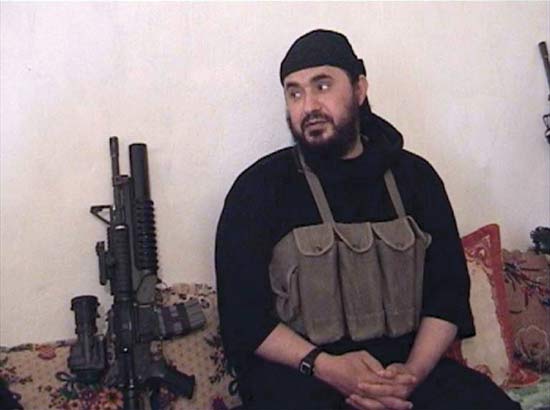
Neo-Zarqawists Target the Arab Christians of Jordan
Publication: Terrorism Monitor Volume: 7 Issue: 34
By:

On October 15, the State Security Court of Jordan imposed jail sentences of 15 to 20 years on 12 alleged Jordanian members of al-Qaeda accused of attacks against a church in the Kingdom last year (Al-Ghad [Amman], October 16; Al-Rai [Amman], October 16). In a reaction similar to those seen in trials of Salafi-Jihadis, plot leader Shaker al-Khatib and the rest of the convicted group prostrated themselves, thanking Allah as a sign of defiance against the court (al-Jazeera, October 15).
Al-Khatib and four others in the group, aged between 19 and 28, received the death penalty, but the court commuted the sentence to 20 years in prison "because they are young and should be given a chance to repent." The other seven were handed 15-year sentences.
This group was charged in July 2008 with carrying out terrorist attacks and manufacturing and using explosives. According to a Jordanian official, "The al-Qaeda members tried to attack a Latin church in Irbid [in North Jordan] in July last year after a Christian boy allegedly insulted the Prophet Muhammed, but the attempt failed…Following that, they attacked the same church again using Molotov [cocktail bombs] and a Christian cemetery in Irbid, but caused no casualties" (AFP, October 16).
Targeting Christians or their churches in Jordan seems to be a significant development in jihadi violence in Jordan. This switch appears to be inspired by the alleged targeting of Iraqi churches by the late leader of al-Qaeda in Iraq, Jordanian Abu Musab al-Zarqawi, before he was killed in June 2006 (see Terrorism Focus, February 6).
The Christians of Jordan are an original part of Jordanian society, which explains their integration into the tribal system of Jordan and their attainment of high political and military ranks. Prior to these attacks, there were no records of sectarian incidents against them in Jordan. The Christians and their places of worship were not formerly major targets for the Salafi-Jihadis, but it seems that the new generation of Salafi-Jihadis (the neo-Zarqawists) is inspired by al-Zarqawi’s legacy of targeting the “non-believers,” such as Shiites, Christians, and Jews.
Jordanian Christians represent between 4-5% of the total population. In January 2009, Jordanian authorities designated the “Council of Church Leaders in Jordan” as the only Christian body recognized by the government. The council includes leaders of the four traditional Christian faiths: the Bishops of the Greek Orthodox, Greek Catholic (Melkite), Roman Catholic, and Armenian Orthodox Churches. There are other Christian churches that are not represented in the council, such as the Evangelist Church, Assemblies of God Church, Church of the Messiah, the Coptic Church and the Maronite Church. The decision by the Jordanian government came after its decision to extradite Protestant evangelists because they “were trying to convert members of Jordan’s older Christian faiths” (ammonnews.net, January, 30). American evangelist movements have targeted the traditional churches of the Middle East (Coptic, Syriac, etc.) for conversion since the 19th century.
In his criticism of al-Zarqawi, his former mentor Shaykh Abu Muhammad al-Maqdisi urged young jihadis not to target churches, elderly tourists, or other civilians on the grounds that such targets are typically chosen because they are easy, not because they have strategic value to jihad (al-Jazeera July 6, 2005; al-Hayat, July 10, 2005; see also Terrorism Monitor, July 9). Al-Zarqawi responded by denying that al-Qaeda in Iraq targeted Arab Christians or other civilians. “Even though these are non-Muslim groups, they have not demonstrated to us that they have become partners of the Crusaders in their fighting against the jihad fighters, and they do not play the base role played by the Shiites" (al-Hesbah, July 2005).
Despite his claims of innocence regarding the killing of Christians and civilians, the legacy of al-Zarqawi has played a major role in creating a more radical generation of jihadis, especially in the Levant region. The Jordanian trials of jihadis started in the early 1990s but did not show Christians to be among the jihadis’ targets before 2004, when the plots related to al-Zarqawi started to appear. In 1991 the Jaysh Muhammad (Army of Muhammad) case revealed that the defendants felt they were permitted to steal from Christians in order to use the funds for the sake of jihad based on an old fatwa (religious ruling) issued by the Egyptian Gama’a al-Islamiya terrorist group in the early 1980s. In a later case known locally as the “Conspiracy of the Millennium,” a Christian site was among the tourist-related targets that the group planned to attack in late 1999. However, this site may well have been chosen largely because of the media exposure it would garner.
Last March, the State Security Court of Jordan sentenced three Jordanians to 22½ years in prison for plotting a suicide car bomb attack on a church in Amman. Their plan called for bombing a Roman Catholic Church in Amman’s eastern district of Marka after initially planning to strike against a police battalion. Convicted ringleader Majid Muhammad Nasr was apparently radicalized in prison by al-Qaeda operatives linked to al-Qaeda in Iraq, including Iraqi Ziyad Karbouli, who is serving his sentence in Jordan (Al-Riyadh, June 27, 2008; for Karbouli, see Terrorism Focus, May 31, 2006).
Following a long period of co-existence, the various plots against Christian targets that have emerged in the last year and the recruitment of Tha’ir Abd-al-Qadir al-Wahidi by Jordanian Islamists to attack a visiting Lebanese Christian Choir in Amman in January demonstrate a major shift in the Islamist view of traditional Arab Christians in Jordan, a change that can ultimately be traced back to the influence of al-Zarqawi on a new generation of jihadis (Dar al-Hayat, January 28; see also Terrorism Focus, February 6).





